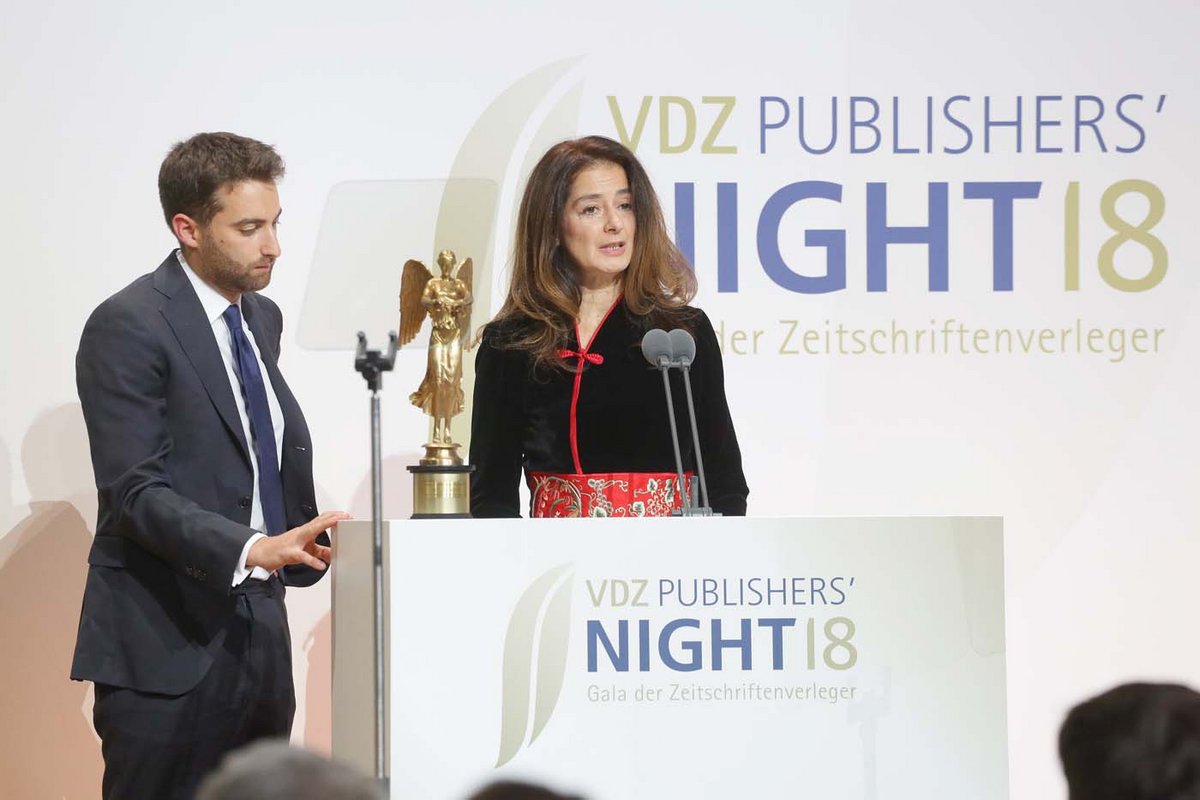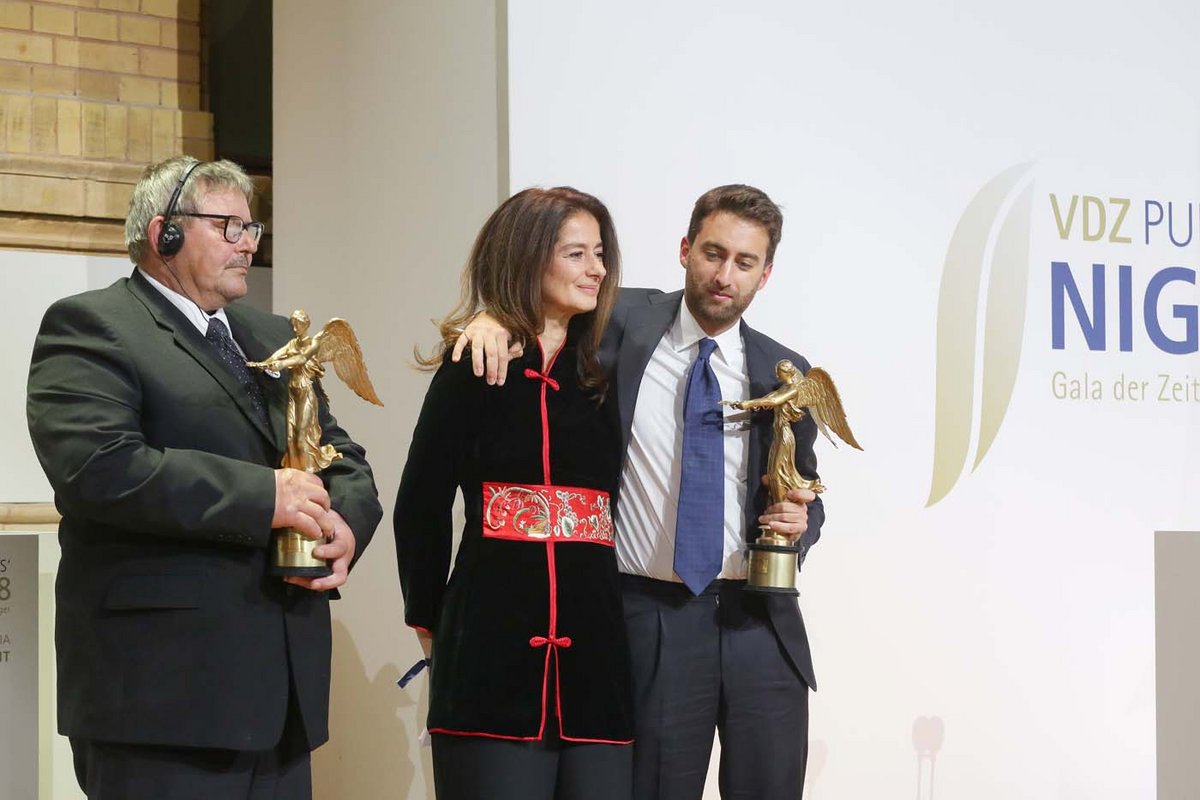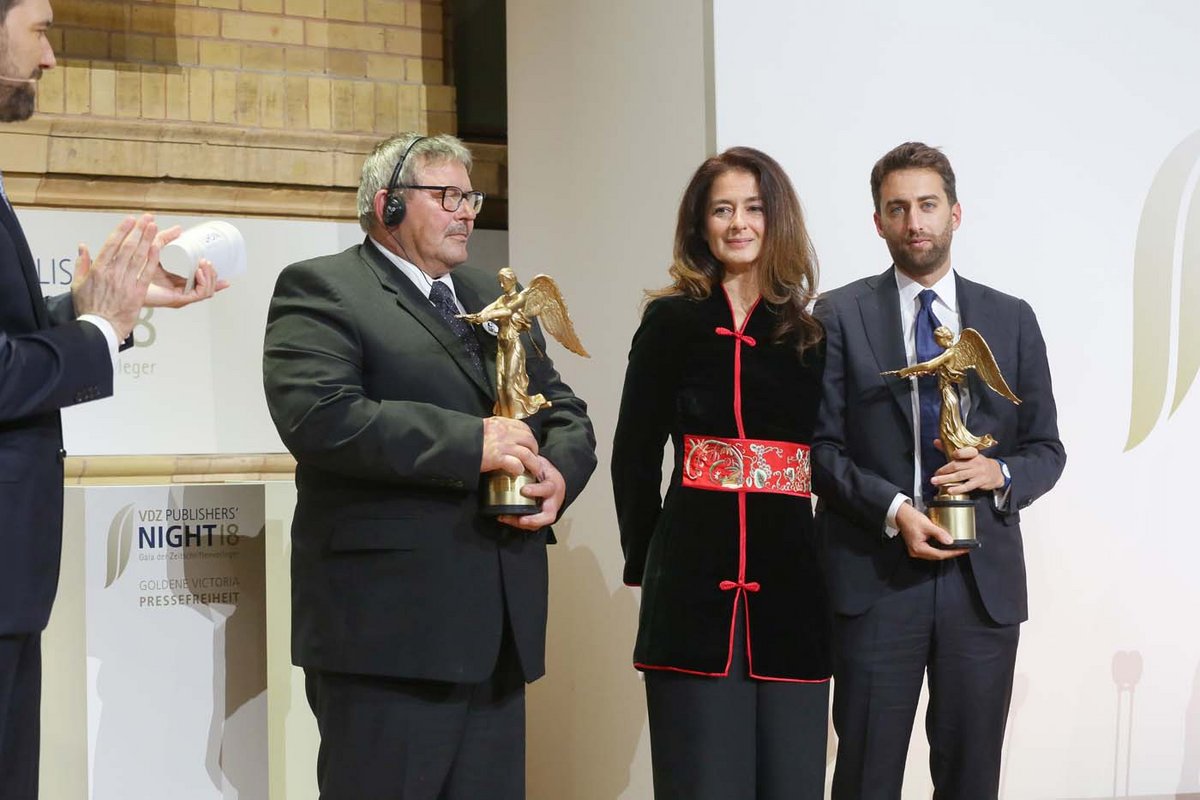Rede von Corinne Vella zur Verleihung der Victoria an ihre Schwester Daphne Caruana Galizia
Your excellency,
Your majesty,
Distinguished guests,
Ladies and gentlemen,
On behalf of Daphne’s husband and sons, and the rest Daphne’s extended family, I want to thank Verband Deutscher Zeitschriftenverleger. We are deeply honoured by the Golden Victoria award.
Some question the value of an award when the recipients have already been killed for their work, when the people who ordered their assassination remain unknown and evade justice, and when the anti-democratic conditions that led to their death remain as terrible as ever in the places where they were killed.
People ask how an award can make a difference, how it can help win justice, fight corruption, hold a state to account for allowing those who expose corruption to be killed in cold blood and in broad daylight. They ask how an award can help Europe understand that it is failing to protect the most vocal defenders of European values - the right to speak freely, the right to know, the right to hold power to account, the right to justice.
As a citizen I have often asked the same questions. But as her sister, I feel differently, as does the rest of our extended family.
As one of Daphne’s sons said recently, we feel differently because we learned immediately on Daphne’s death that killing her was only the first step towards making her disappear forever. The next steps were to kill her legacy, to turn people against her, and to harass and intimidate anyone who tries to commemorate her, or to fight for justice for her assassination and for investigations into the crimes she exposed.
Our family, Daphne’s friends and colleagues in Malta and in the international media, have been compelled to accept that some people are happy she was killed and in such a horrific way. That is the direct outcome of a 30-year campaign to distort Daphne’s work which has continued now that she is no longer around to defend it.
There have been repeated attempts to encourage people to forget her, in the hope that they will also forget her work and the corruption and crimes she exposed, and that they will forget whoever ordered and paid for Daphne’s assassination enjoys complete impunity and possibly protection by people in power.
The day Daphne died, a group of young people left flowers in her memory on a monument opposite the law courts in Valletta, one of this year’s European capitals of culture. Those flowers grew into a protest memorial where people gather every 16th of the month to commemorate Daphne and to call for justice. At the last count, the protest memorial had been destroyed over 60 times. We now know that this happens on the instructions of the justice minister. The state broadcaster never reports on vigils held at the protest memorial site every month. The vigil organisers are mocked and heckled, even by public officials. They have been forced to file a case in Malta’s constitutional courts to protect their right to protest.
People in power who influence law enforcement, control a large part of Malta’s media, including the state broadcaster, and influence the thinking of many of my fellow Maltese, brand Daphne as a traitor, as a witch, as a purveyor of fake news. They refer to her as a ‘hate blogger’, a term they were not embarrassed to use even in official communications. They say Daphne expressed herself too harshly, that she wrote too freely. Effectively, they blame her for her own assassination, even as Malta’s prime minister continues to block a judicial public inquiry into whether the state could have prevented her assassination.
This is why the Golden Victoria award is so important.
If Daphne’s memory and legacy are destroyed, the criminal and the corrupt will have triumphed and the European values Daphne worked so hard to defend will have failed. The Golden Victoria award recognises Daphne’s work not just as a personal achievement but as a legacy that belongs to society.
Daphne herself is now beyond all harm but the Golden Victoria award honours her life’s work and, in doing so, helps to protect her legacy. The award reminds everyone that journalism is essential to democracy and that true democracy does not exist if journalists are unable to work freely. It reminds us that our rights, including the right to know, should not be taken for granted.
In accepting the honour in Daphne’s name, I also accept it on behalf of all those journalists who continue her work in Malta and elsewhere; on behalf of journalists around the world who have told and retold her story; and on behalf of everyone who keeps her memory alive and continues to campaign for justice, despite the personal risks.
They too have helped protect Daphne’s memory and have become part of her legacy. While criminal justice for her death remains elusive, the Golden Victoria award brings us closer to another sort of justice - one that recognises Daphne’s work as a legacy to society and her assassination as a crime against the European values she defended.
Thank you.




